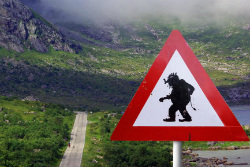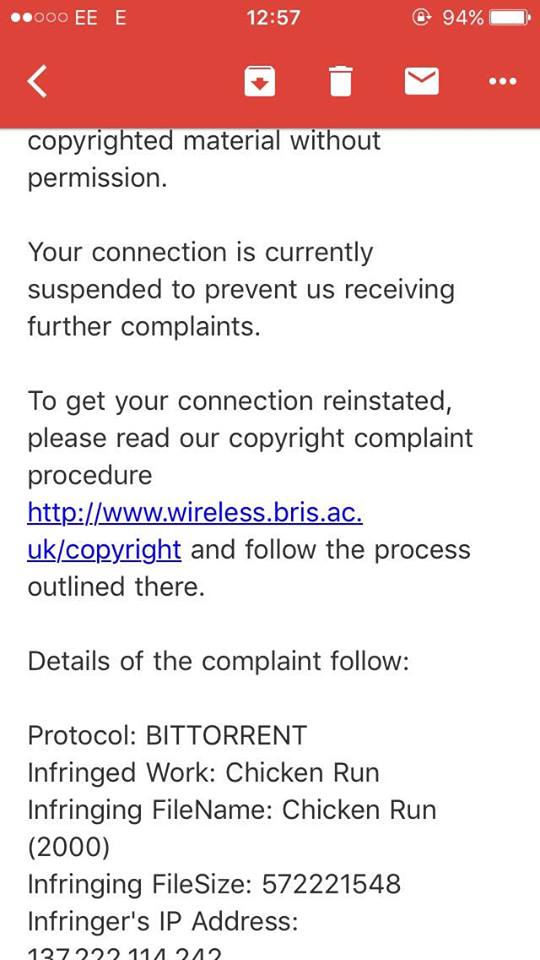 Most people who create something like to be credited for their work. Whether you make a video, song, photo, or blog post, it feels ‘right’ to receive recognition.
Most people who create something like to be credited for their work. Whether you make a video, song, photo, or blog post, it feels ‘right’ to receive recognition.
The right to be credited is part of the so-called “moral rights,” which are baked into many copyright laws around the world, adopted at the international level through the Berne Convention.
However, in the United States, this is not the case. The US didn’t sign the Berne Convention right away and opted out from the “moral rights” provision when they eventually joined it.
Now that the U.S. Copyright Office is looking into ways to improve current copyright law, the issue has been brought to the forefront again. The Government recently launched a consultation to hear the thoughts of various stakeholders, which resulted in several noteworthy contributions.
As it turns out, both the MPAA and RIAA are against the introduction of statutory moral rights for artists. They believe that the current system works well and they fear that it’s impractical and expensive to credit all creators for their contributions.
The MPAA stresses that new moral rights may make it harder for producers to distribute their work and may violate the First Amendment rights of producers, artists, and third parties who wish to use the work of others.
In the movie industry, many employees are not credited for their work. They get paid, but can’t claim any “rights” to the products they create, something the MPAA wants to keep intact.
“Further statutory recognition of the moral rights of attribution and integrity risks upsetting this well-functioning system that has made the United States the unrivaled world leader in motion picture production for over a century,” they stress.
The RIAA has a similar view, although the central argument is somewhat different.
The US record labels say that they do everything they can to generate name recognition for their main artists. However, crediting everyone who’s involved in making a song, such as the writer, is not always a good idea.
“A new statutory attribution right, in addition to being unnecessary, would likely have significant unintended consequences,” the RIAA writes (pdf).
The RIAA explains that the music industry has weathered several dramatic shifts over the past two decades. They argue that the transition from physical to digital music – and later streaming – while being confronted with massive piracy, has taken its toll.
There are signs of improvement now, but if moral rights become the standard, the RIAA fears that everything might collapse once gain.
“After fifteen years of declining revenues, the recorded music industry outlook is finally showing signs of improvement. This fragile recovery results largely from growing consumer adoption of new streaming models..,” the RIAA writes.
“We urge the Office to avoid legislative proposals that could hamper this nascent recovery by injecting significant additional risk, uncertainty, and complexity into the recorded music business.”
According to the RIAA it would be costly for streaming services credit everyone who’s involved in the creative process. In addition, they simply might not have the screen real estate to pull this off.
“If a statutory attribution right suddenly required these services to provide attribution to others involved in the creative process, that would presumably require costly changes to their user interfaces and push them up against the size limitations of their display screens.”
This means less money for the artists and more clutter on the screen, according to the music group. Music fans probably wouldn’t want to see the list of everyone who worked on a song anyway, they claim.
“To continue growing, streaming services must provide a compelling product to consumers. Providing a long list of on-screen attributions would not make for an engaging or useful experience for consumers,” RIAA writes.
The streaming example is just one of the many issues that may arise, in the eyes of the record labels. They also expect problems with tracks that are played on the radio, or in commercials, where full credits are rarely given.
Interestingly, many of the artists the RIAA claims to represent don’t agree with the group’s comments.
Music Creators North America and The Future of Music Coalition, for example, believe that artists should have statutory moral rights. The latter group argues that, currently, small artists are often powerless against large corporations.
“Moral rights would serve to alleviate the powerlessness faced by creators who often must relinquish their copyright to make a living from their work. These creators should still be provided some right of attribution and integrity as these affect a creator’s reputation and ultimately livelihood.”
The Future of Music Coalition disagrees with the paternalistic perspective that the public isn’t interested in detailed information about the creators of music.
“While interest levels may vary, a significant portion of the public has a great interest in understanding who exactly contributed to the creation works of art which they admire,” they write (pdf).
Knowing who’s involved requires attribution, so it’s crucial that this information becomes available, they argue.
“Music enthusiasts revel in the details of music they adore, but when care is not taken to document and preserve that information, those details can often lost over time and eventually unattainable.”
“To argue that the public generally has a homogenously disinterested opinion of creators is insulting both to the public and to creators,” The Future of Music Coalition adds.
The above shows that the rights of artists are clearly not always aligned with the interests of record labels.
Interestingly, the RIAA and MPAA do agree with major tech companies and civil rights groups such as EFF and Public Knowledge. These are also against new moral rights, albeit for different reasons.
It’s now up to the U.S. Copyright Office to determine if change is indeed required, or if everything will remain the same.
Source: TF, for the latest info on copyright, file-sharing, torrent sites and ANONYMOUS VPN services.

 Over the years, copyright trolls have been accused of involvement in various dubious schemes and actions, but there’s one group that has gone above and beyond.
Over the years, copyright trolls have been accused of involvement in various dubious schemes and actions, but there’s one group that has gone above and beyond. This week we have three newcomers in our chart.
This week we have three newcomers in our chart. Most people who create something like to be credited for their work. Whether you make a video, song, photo, or blog post, it feels ‘right’ to receive recognition.
Most people who create something like to be credited for their work. Whether you make a video, song, photo, or blog post, it feels ‘right’ to receive recognition. 


 Earlier this week, news broke that Disney was being extorted by hackers who were
Earlier this week, news broke that Disney was being extorted by hackers who were 
